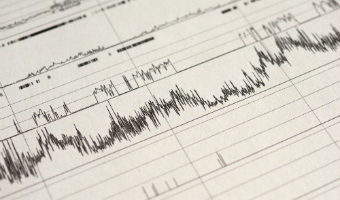Sleep Apnea Diagnosis
Being tested for sleep apnea is simple and painless. Your primary care physician can refer you to a specialist at Advanced Respiratory Care Network for your diagnostic test. While there are many different tests to get a diagnosis, they are all seemingly painless and fairly quick to get results so that you can start treating your disorder as soon as possible.
What can I expect?
| A commonly used method of diagnosing sleep apnea is polysomnography (PSG), or a Level 1 Sleep Study. A PSG is performed in a sleep center. You will spend the night in a private room, one similar to something you would find in a nice hotel. In some cases, your doctor may recommend a portable testing device for your sleep study. This device, which measures key indicators of your sleep, can be used in your home setting. It is also known as a Level 3 Sleep Study. Advanced Respiratory Care Network offers many different types of sleep studies and can get you the one you need - just ask your doctor for a referral! |  |
When you are diagnosed with sleep apnea, whether using a PSG in a sleep center or using a portable device in your home, the test is non-invasive and painless. Before you go to bed, sensors will be attached to your body that will measure things like whether you are snoring and how much oxygen you have in your blood stream. If you are using a portable testing device, a qualified technician will show you how to wear and use the device before you go to bed.
Information is collected by the sensors while you sleep. After the study is completed, a sleep expert (a sleep specialist doctor or pulmonologist) will use that information to decide whether you have sleep apnea, another kind of sleeping disorder or if there needs to be further testing done to determine which treatment path would be best for you. If you are concerned with your sleep, have your doctor refer you to Advanced Respiratory Care Network and book your consultation today.
